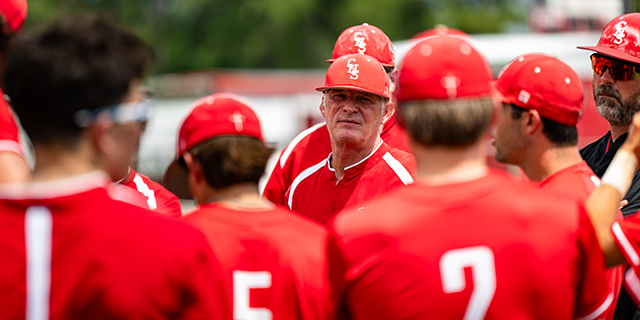True Blue
Published 8:00 am Friday, September 18, 2015

- True Blue
By Amanda Jean Harris
The thin blue line feels increasingly thinner right about now. And one Lafayette police sergeant is working to change that with an effort that takes to the great outdoors. Sgt. Shannon Brasseaux of the Lafayette Police Department has done more than talk about the waning camaraderie of the force, he is working to solidify it and reaching out to officers that need it most – those involved in critical incidents like shootings.
br
“We’ve been talking about how the camaraderie wasn’t there like it was years ago and we went out to create something where we hunt and fish with these guys who have been injured,” Brasseaux says. “There’s a lot of stress after a shooting.”
br
A year ago, Brasseaux put up some money and started Blueblood Outdoors and by the end of this month they will likely have the first fishing excursion complete for a Lafayette officer. While the tension and trauma the public sees can certainly wear on any officer, Brasseaux and Bluebloods aim to also address some of the behind-the-scene trials many officers face.
br
“When there’s a critical incident the background is the civil litigation, the stress on the family and the law suits,” Brasseaux says.
br
Brasseaux explains that at a time when officers perhaps most need their fellow law enforcement brothers, they are usually at home on leave. “It can be the hardest part about the whole thing. You’re on leave and you’re at home with your family and you‘re not back at work in your element. If we can grab those guys and say ‘let’s go out for the weekend and hunt and fish. Let’s talk about it and, of course, pray about it.’ If we can give some guidance with God that will be the ultimate and best part of it,” Brasseaux says.
br
A connection to fellow officers can be a crucial part of reconnecting for men and women who have experienced trauma. According to experts there is a powerful role of social support for police officers. “They have similar experiences and similar training and they know the environment and the strengths and the limitations,” says psychologist Amy Cavanaugh.
br
The cohesive identity in a group like law enforcement reinforces a sense of understanding and recognition of the trauma they’ve experienced. In other words: it’s beneficial for them to be with people who get it.
br
“It’s a different type of trauma,” Cavanaugh says. “These are sometimes stories you can’t bring home to a family.” She says some prefer to not even share with mental health professionals outside of the field of law enforcement or military. Cavanaugh says family and friends can best help those officers by encouraging them to connect to their peer group and get involved with nonprofits like Bluebloods.
br
“They can talk to people with the same background,” she says. “Don’t ask specific questions. The person may not want to traumatize or burden family or friends. Be welcoming and be available without expecting them to talk about the specifics.”
br
Cavanaugh says pressure to revisit trauma isn’t the route to go when trying to be there for a family or friend on the force. Instead, pointing them to people who they can talk with who have similar experiences is paramount along with simply being available if they do want to share.
br
For Brasseaux, the creation of Bluebloods is all about being there for the big and the seemingly small — solidifying a sense of brotherhood in all things.
br
“It’s important to have strong camaraderie and be there for each other,” Brasseaux says “I want Blueblood to be there if something does happen even if it’s just mowing your grass after you break your leg — showing the brotherhood is still strong.”
br
The sergeant is a 25-year veteran of law enforcement beginning his career in the late 80s in the Sheriff’s Department. He says every department is different — some are tight knit and others are not. Many times it’s simply a matter of logistics in scheduling that creates distance. Whatever the case, Brasseaux is working to instigate a return to the bond of officers. Bluebloods will also serve to help out firefighters as well.
br
He says whatever the case, they want to bring a healthy option for those following trauma. “I’ve always said it’s not about the hunt — it’s about the experience and that’s something that’s really important. The experience of hanging out and being out there and watching the sun come up is a soothing experience,” Brasseaux says.
br
Hunting excursions aren’t the only options for Bluebloods with a few smaller projects already complete including a fort built for the son of a man killed in the line of duty as well as patches from across the country collected for an injured officer.
br
“Anything to bring them back and show them that the thin blue line has the camaraderie that it should,” Brasseaux says.
br
For more information and to purchase hats, shirts, decals and other items to support Bluebloods go to bluebloodoutdoors.com.
br
br





